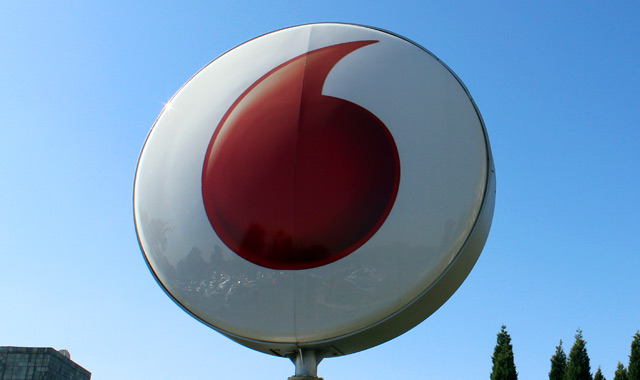
Throughout history, intellectual property has been a contested terrain. Recent legal disputes involving big companies such as Apple and Samsung have brought the subject down to an everyday conversation.
South Africa’s intellectual property law shares many similarities with other countries, but knowledge of the system, how it works and how it relates to other fields of law has generally been limited to practitioners and experts. The recent dispute between cellphone group Vodacom and its erstwhile employee Nkosana Makate provides a rare opportunity for the public to join this important discussion.
The case is due to be heard by the constitutional court shortly.
Makate claims to have invented the “please call me” service while working as a trainee accountant at Vodacom. The service allows a subscriber who doesn’t have enough units to text another subscriber to call him or her back. Although similar services had existed in other countries, the particular ease of use of the “please call me” service made it unique.
Makate put his idea in writing, pitched it to one of his managers, and eventually entered into a verbal agreement with the company entitling him to a portion of any revenue generated from the service. Verbal agreements are binding in South Africa, and are in fact very more common in big businesses.
It is common cause that, as a result of the service, Vodacom has generated billions of rand in revenue.
In the initial judgment of the high court in Johannesburg, the case was effectively thrown out on several technicalities. One of them was that Vodacom could not be bound to the agreement Makate had with the head of product development of the company at that time. This was largely due to the fact that the legal basis as to why they should have been held bound had not been properly pleaded prior to going to trial.
Another technicality was that the claim by law had to be instituted within three years, and had as a result expired by the time the suit was instituted in 2008.
Given these facts, it is unsurprising that there has been criticism of the judgment, which seems bad in equity if not in law, although this point is also up for debate.
As a result of cases such as this, including allegations of infringement by large corporate retailers against smaller firms, there has been speculation about whether intellectual property protection for individuals who come up with novel ideas in inadequate.
While some would blame this on outdated legislation, this is hardly the greatest cause. Rather, the blame should be placed in part on a lack of education, especially for the most vulnerable innovators, and in part on problematic and costly enforcement mechanisms. Makate is one of the lucky ones. He has financial backing for his claim. Most in his position do not.
How protection works
The philosophical underpinning of intellectual property law is often ascribed to the writings of John Locke, who believed that we should be entitled to the fruits of our intellectual labour, and that the law should develop mechanisms to ensure that our novel creations are protected. In this way, intellectual property law seeks to promote innovation.
In the realm of patents, it seeks to protect and promote this by affording the creator of something wholly novel the ability to potentially create a new market, and then to exploit that market through the conferral of a qualified right to monopoly. Copyright affords the author of an original work of art — be it literary, musical, graphical or otherwise — the right to dictate how, when and where it may be copied or adapted.

To gain a patent, a person must take their fully developed idea for a particular process or product and register it so as to be able to enforce it against others. Copyright, in turn, normally vests automatically on publication of a recognised original work of art in a reproducible format. No registration is required.
The fundamental difference between the two is that patents seek to protect wholly new ideas that are seen to move the state of the art forward, while copyright does not protect an idea but rather the original expression of one.
In the “please call me” case, one can see where the obvious grey areas exist. What happens when a sufficiently developed idea, which is not registered as a patent and which is not substantively viable or reproducible in the form it is currently expressed, effectively gets “stolen”?
Most people would clearly say: “This is wrong! That idea deserves protection.” Yet this is not always going to be the case in South African law, nor in most other countries, unless you can show that the idea was worthy of protection on some other basis, such as a duty of confidentiality or to prevent unlawful competition. In fact, as was held in the “please call me” case, there was seen to be a contract which had clearly been breached in bad faith, but one which could ultimately not be enforced against Vodacom. Or at least not yet.
What the law says
The country’s copyright law is based on the same founding principles as most other developed countries, and its patent laws share similarities with other developed countries in allowing for greater international enforcement. Recent amendments have been proposed to the Copyright Act to supposedly bring it further in line with international trends and treaty obligations. But they have met with criticism, and for good reason.
The problem is not a gap per se in South African intellectual property law vis-à-vis other countries, but rather how some of the country’s courts are choosing to interpret the ambit of their powers and duties in light of extreme bad faith. This can be seen in the “please call me” case. The constitutional court has already dealt with the question of good faith in commercial law in several judgments, most notably the case of Barkhuizen v Napier. Perhaps now is a fruitful time to shed more light on the issue.![]()
- Pieter GJ Koornhof is lecturer in the department of mercantile and labour law at the University of the Western Cape
- This article was originally published on The Conversation

